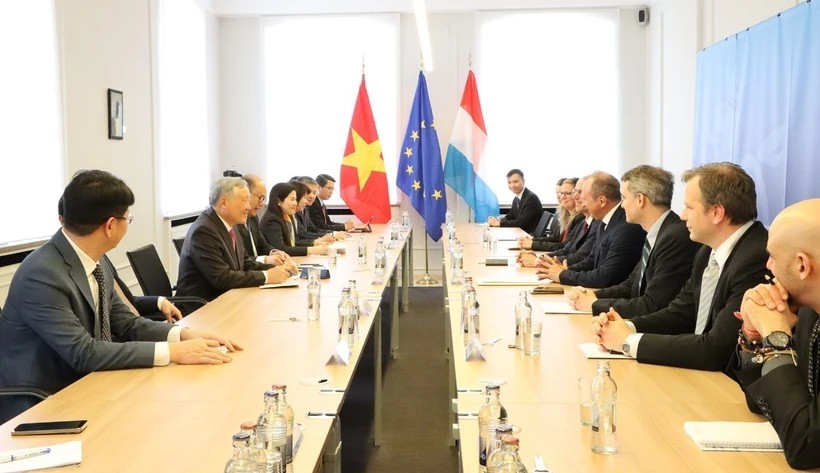70 Years Since the Northward Gathering: A Unique Ballad of Love for the Homeland
| How Ho Chi Minh seeded patriotism of Vietnamese in Thailand | |
| 1954 Geneva Agreement - A Glorious Milestone in Vietnamese History |
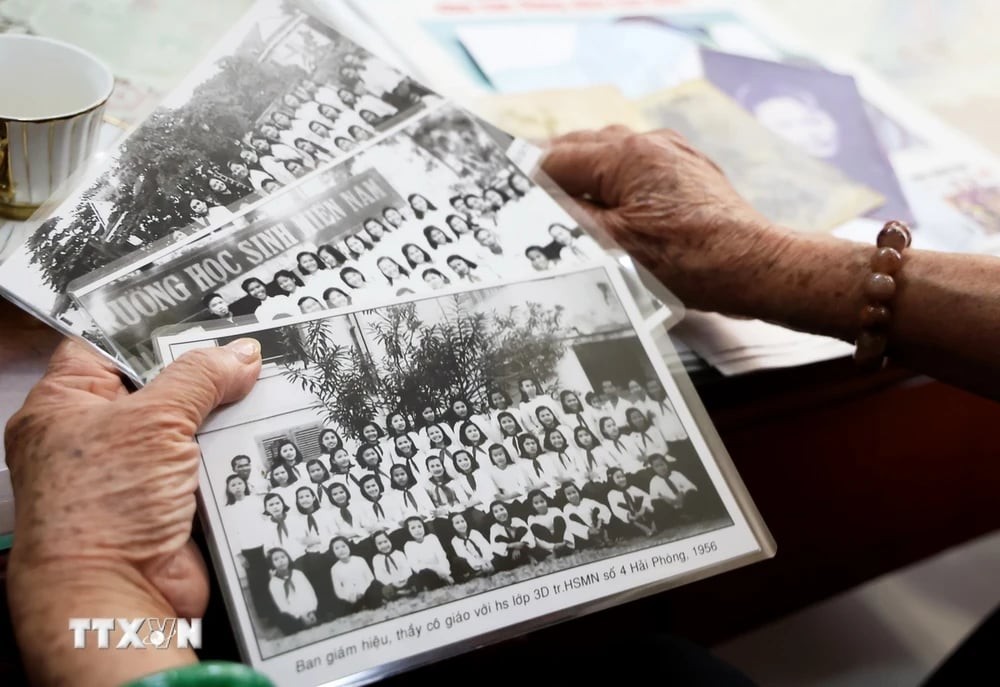 |
| Meritorious teacher Dam Thi Ngoc Tho introduces images of class 3D of Southern students, Hai Phong school No. 4 in 1956. (Photo: Hong Dat/VNA) |
A Steadfast Belief
Seventy years ago, after the world-shaking victory at Dien Bien Phu, the French colonialists were compelled to sign the Geneva Agreement, which aimed to cease hostilities and restore peace in Indochina. According to the agreement, Vietnam was temporarily divided into two regions: the North, which was fully liberated, and the South, which remained under the administration of French Union forces and the Saigon government. A national referendum to unify the country was planned for two years later.
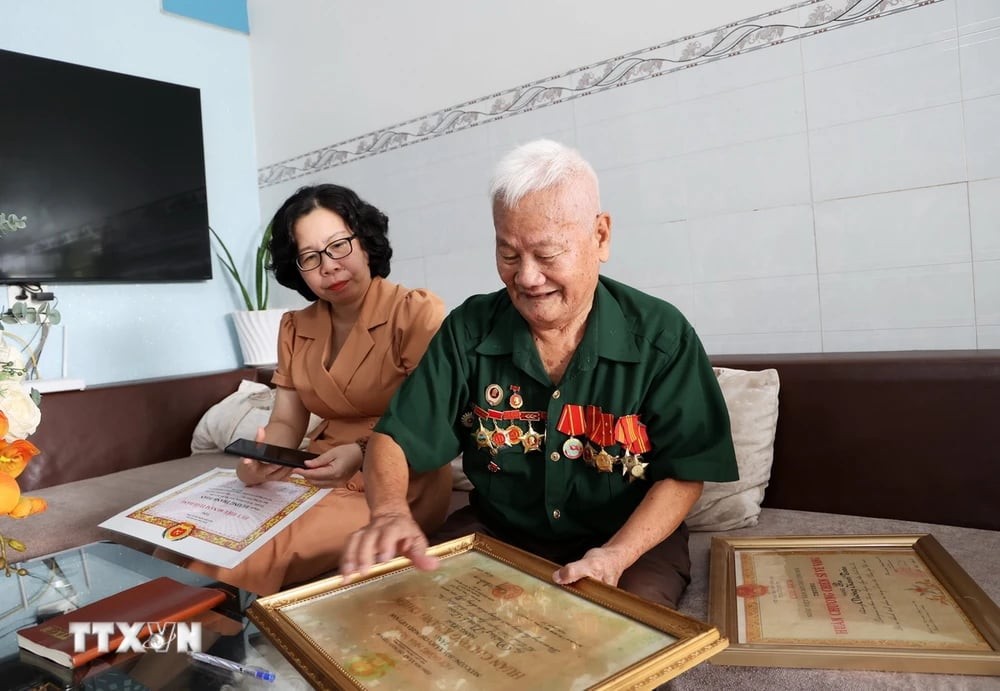 |
| Mr. Duong Thanh Toan was awarded many medals and orders during his work. (Photo: Hong Dat/VNA) |
In this historical context, around 200,000 Southern revolutionary cadres, soldiers, and students moved to the North.
There were three gathering points in the South: Xuyen Moc (Ba Ria - Vung Tau), Cao Lanh (Dong Thap), and Ca Mau. Ca Mau served as the longest-standing gathering area for 200 days, from July 21, 1954, to February 10, 1955, for the Northern West forces.
Duong Thanh Toan, a 92-year-old resident of Ward 5 in Ca Mau City, recalled that in November 1954, at the age of 22, he left for the North from the assembly area along the Chac Bang Canal in Tri Phai Commune, Thoi Binh District, Ca Mau. Despite leaving his homeland and family, he understood his duty and never hesitated.
All cadres and soldiers, whether staying or leaving, shared a firm belief that “whether we stay or go, it is all for the mission.” They remembered President Ho Chi Minh's words after the Geneva Conference, stating the gathering in the North was “not to divide our country, but a step toward a ceasefire, peace, and eventual unification.”
In the North, Duong Thanh Toan fulfilled his duties with excellence, earning numerous medals and commendations. In October 1968, President Ho Chi Minh awarded him the Third-Class Medal of Distinguished Soldier.
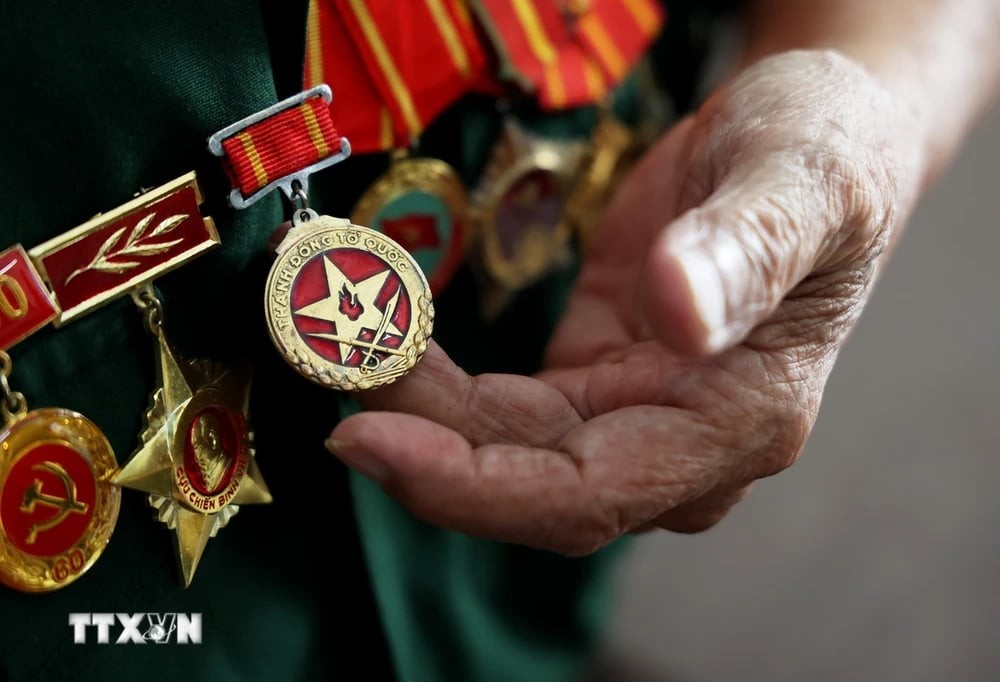 |
| Duong Thanh Toan takes pride in being awarded the "Iron Fortress of the Fatherland" Medal – a prestigious honor for the people of the South. (Photo: Hong Dat/VNA) |
Duong Thanh Toan shared, "Receiving a medal signed by President Ho Chi Minh is incredibly moving and makes me feel fortunate, especially as a son of the South who grew up in the North. While I have received many medals, awards, and commendations, this one is particularly special. Many of my comrades who remained in the South to continue fighting were equally deserving but never had the chance to receive such a medal, as President Ho Chi Minh passed away in September 1969."
Nguyen Anh Son, now 86, reflected on his experiences in Tan Xuyen ward, Ca Mau city. He recalled, "As a 16-year-old student from the South heading to the North, I felt a mix of excitement and bittersweet sadness about leaving my family and homeland. However, I understood that temporarily leaving the South was necessary for the goal of national reunification and a united homeland."
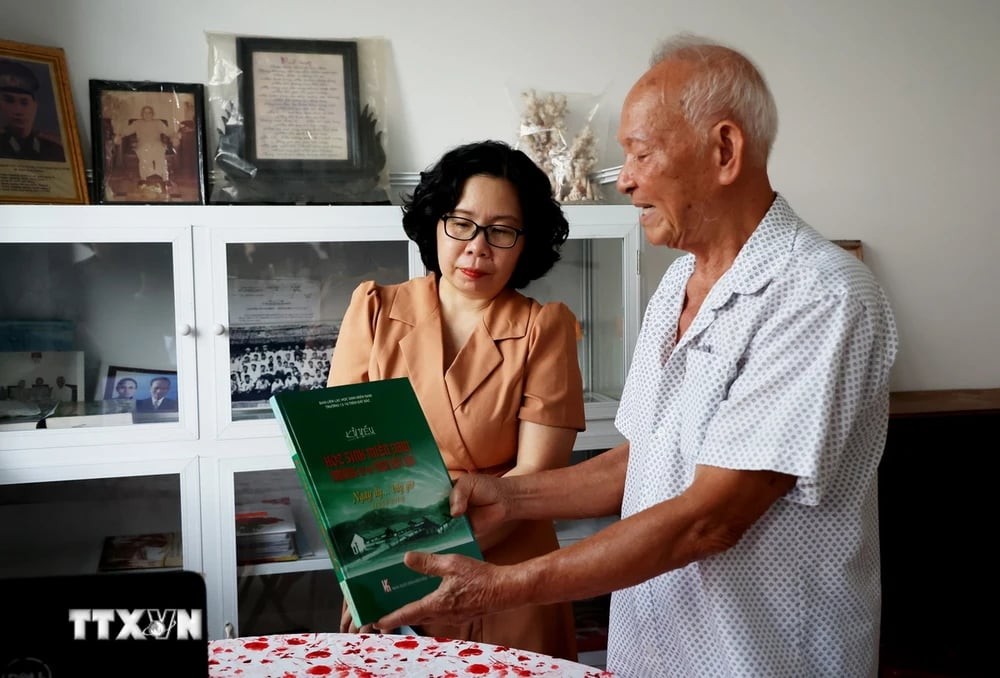 |
| Nguyen Anh Son (86 years old, Tan Xuyen ward, Ca Mau city), a student who gathered in the North 70 years ago, always considers "The yearbook of Southern students of school 12-16 in the North, then... now " (Photo: Hong Dat/VNA) |
Nguyen Anh Son is the elder brother of People's Armed Forces hero and martyr, pilot Nguyen Van Bay B. After attending school for Southern students in the North, Son pursued higher education in the Soviet Union. Upon returning, he worked in the North before joining the fight in the South, participating in the struggle until the liberation.
Ho Trung Viet, Head of the Propaganda Department of the Ca Mau Party Committee, highlighted that the regrouping to the North 70 years ago was a strategic decision by the Central Party and President Ho Chi Minh. This initiative brought many Southern children, cadres, soldiers, and compatriots to the North, where they continued their education and training, building a strong cadre force for the Party's long-term revolutionary goals.
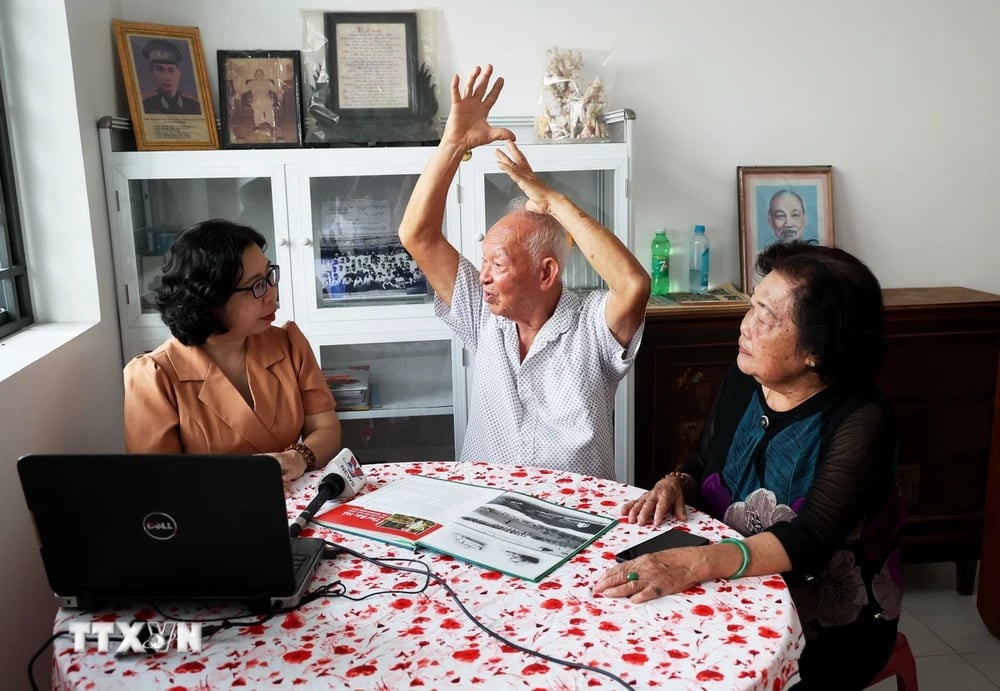 |
| Nguyen Anh Son recounts the train that took him from the South to the North 70 years ago. (Photo: Hong Dat/VNA) |
The Southern cadres, soldiers, students, and families who relocated to the North faced numerous challenges but quickly adapted, making significant contributions to the fight against colonial and imperialist forces, the liberation of the South, and the country's unification. Many of these individuals later became leaders, top scientists, and specialists in various fields, bringing honor to their homeland and nation.
A Unique Ballad
To this day, as she recalls the memories of 70 years ago, Dam Thi Ngoc Tho (83 years old, reflected in Ward 9, Ca Mau City) is still moved to tears.
“In the embrace of the North, I grew up, matured, and became a teacher,” she says. “After returning to my homeland in Ca Mau, I served as the Principal of Ho Thi Ky High School and was awarded the title of Meritorious Teacher by the State.”
When she decided to head North, young Dam Thi Ngoc Tho felt immense pride and honor. Yet, as she looked back at her mother, who stood under the rows of areca palms to see her off, her tears began to flow.
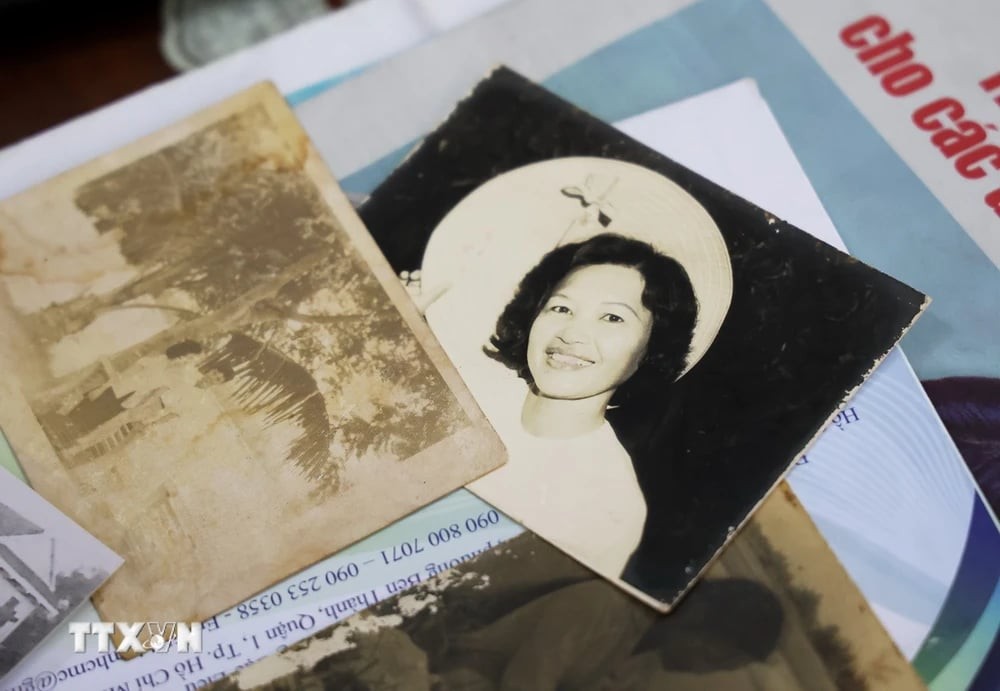 |
| Meritorious teacher Dam Thi Ngoc Tho during her time studying and teaching in the North. (Photo: Hong Dat/VNA) |
At the age of 13, Ngoc Tho began her journey away from her family, experiencing communal life in Tri Phai Commune, Thoi Binh District, while waiting for her ship at Song Doc Port. She was surrounded by the care and support of the local people. On the day of departure, those staying behind and those leaving exchanged peace signs, promising to reunite in two years.
Tran Minh Nhan, Vice Chairman of the People's Committee of Thoi Binh District, shared that 70 years ago, the Chac Bang Canal area became a central gathering site for cadres, soldiers, and students preparing to journey North.
During this period, local boats and sampans transported people from Thoi Binh District to the Song Doc estuary in Tran Van Thoi District to board ships. The people of Thoi Binh provided various types of boats to assist in the transport.
Seventy years ago, despite limited space, many households opened their homes to provide lodging for those preparing to head North and for families visiting loved ones. The local government, Fatherland Front, and Soldiers' Mothers Association ensured food and accommodations were provided. Mothers, sisters, and younger siblings sewed clothes, wove hats, and embroidered handkerchiefs as gifts for the departing soldiers. This spirit reflects Thoi Binh's unwavering loyalty and trust in the Party and the revolution.
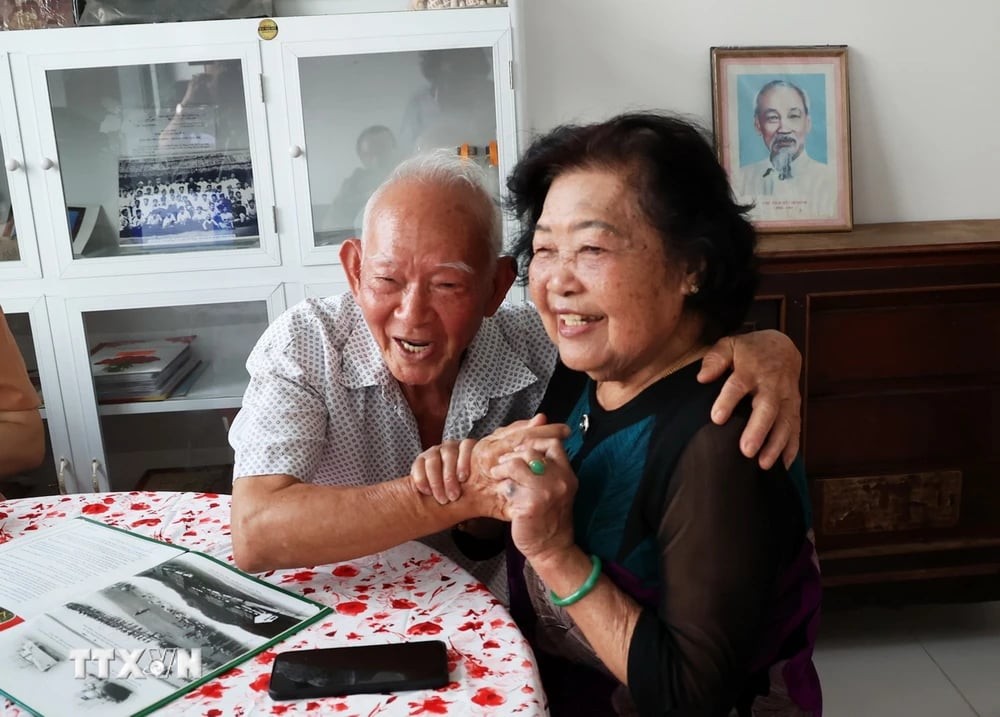 |
| The joy of meeting again between teacher Dam Thi Ngoc Tho and Nguyen Anh Son, who studied in the same high school in the North. (Photo: Hong Dat/VNA) |
After bidding farewell to their Southern compatriots and heading North, the Southern cadres, soldiers, and students were warmly welcomed, cared for, and supported with true Northern-Southern familial unity by residents in many Northern regions.
Dam Thi Ngoc Tho shared: “When we arrived in Sam Son (Thanh Hoa), people gathered, waving flags and flowers, cheering 'Long live the South.' Southern students were given warm jackets and blankets, guided on the regulations, and hosted by local families before eventually continuing their studies at the Southern Students' Schools.”
At that time, peace had just been established in the North, and life was still challenging for the Northern people. The first winter on Northern soil was unfamiliar for Southern students like Tho. However, the warmth of the North—their meals without corn or cassava fillers reserved for Southern students, the thick, warm jackets, and especially the guidance and support of teachers and the Northern people—became a “warm fire” that fueled their strength. This affection encourages Southern students to strive in study, work, and dedication, all looking toward the day when “the North and South will be reunited as one.”
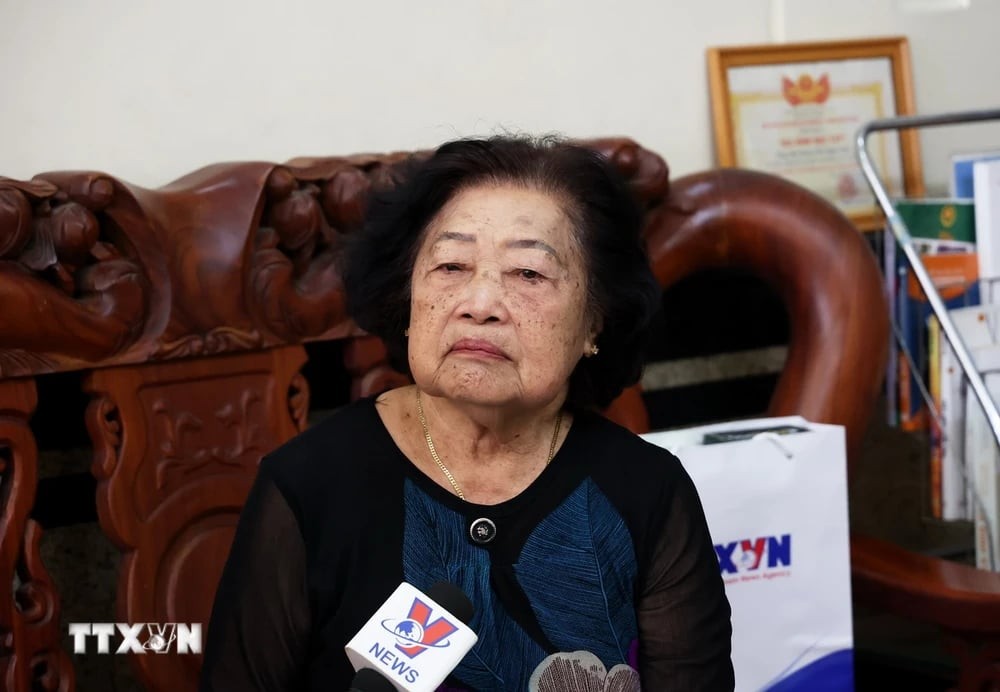 |
| Meritorious teacher Dam Thi Ngoc Tho emotionally recalls the heroic years in the arms of the people of the North. (Photo: Hong Dat/VNA) |
"I believe that the gathering in the North was not only a historical event but also a special love song about our love for the homeland, the country, the deep-rooted North-South bond that cannot be divided, comradeship, and romantic love. .. Forever, we Southern students like myself will never forget," shared Dam Thi Ngoc Tho with deep emotion and pride.
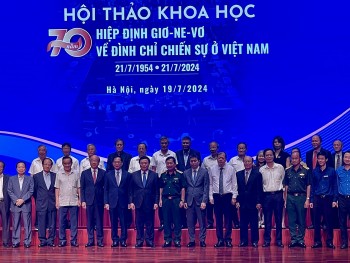 | Geneva Agreement - Valuable Handbook on Foreign Affairs Historical lessons from the process of negotiating, signing and implementing the 1954 Geneva Agreement contributes to research, building and perfecting the theoretical basis and methodology ... |
 | Exhibition of Over 120 Documents Commemorating Geneva Agreement Opens in Hanoi The exhibition recreates the negotiation process, signing, and implementation of the Geneva Agreement and provides deeper knowledge of the significance of the Agreement. |
Recommended
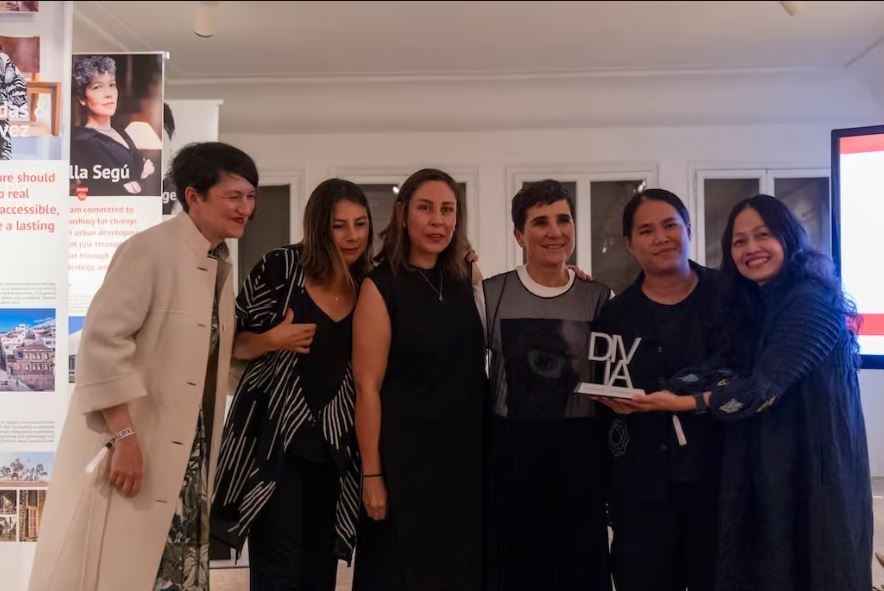 Viet's Home
Viet's Home
Vietnamese Architect Wins the Diversity in Architecture Award 2025
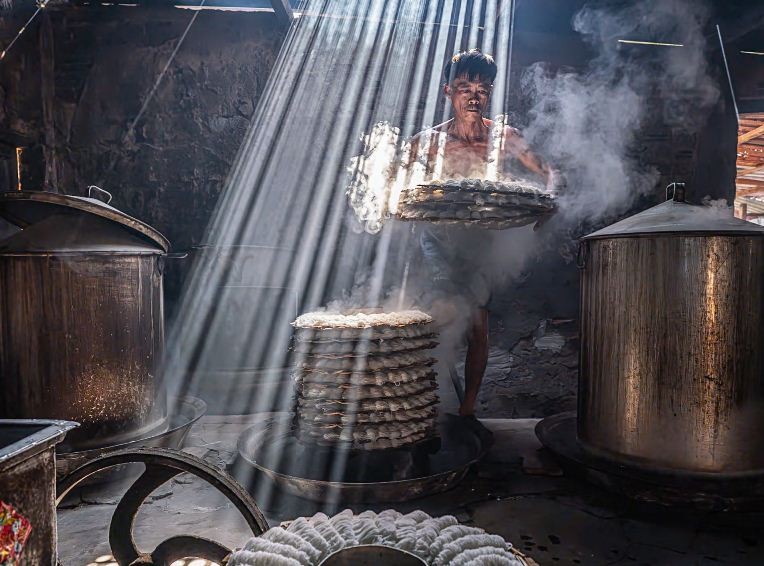 Viet's Home
Viet's Home
Vietnamese Photographer Triumph in Global Food Photography Contest
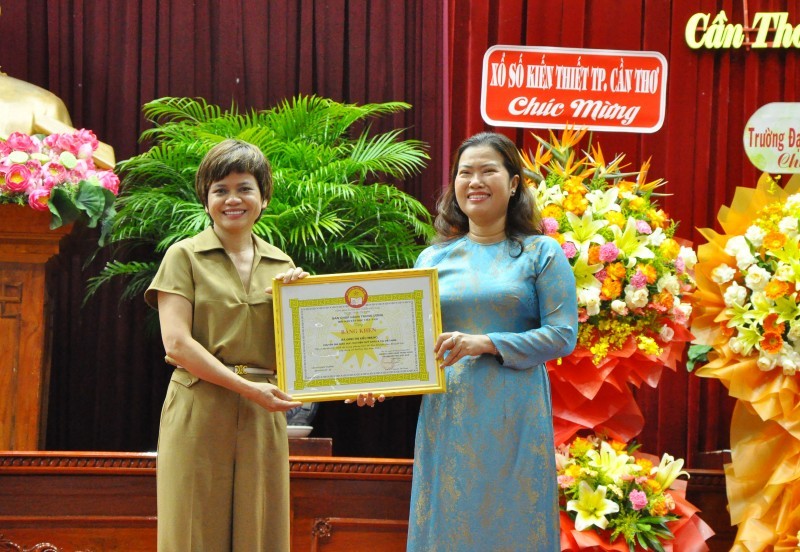 Viet's Home
Viet's Home
The Asia Foundation Awards 101 Scholarships to Can Tho Female Students
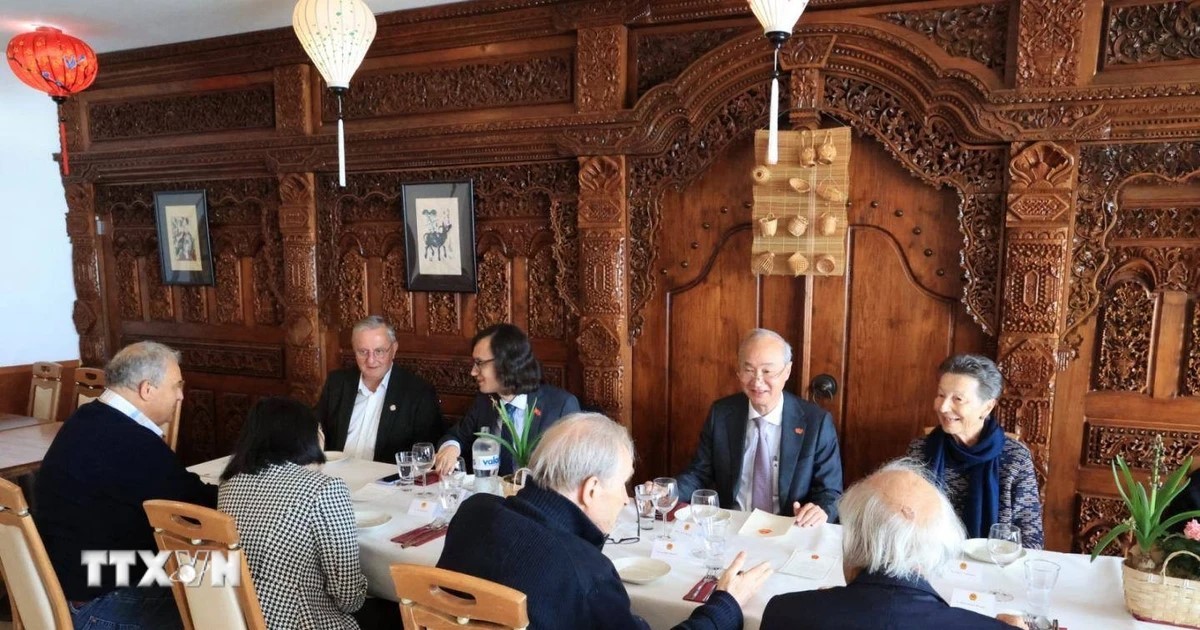 Viet's Home
Viet's Home
Ho Chi Minh And Deep Admiration in the Memories of International friends
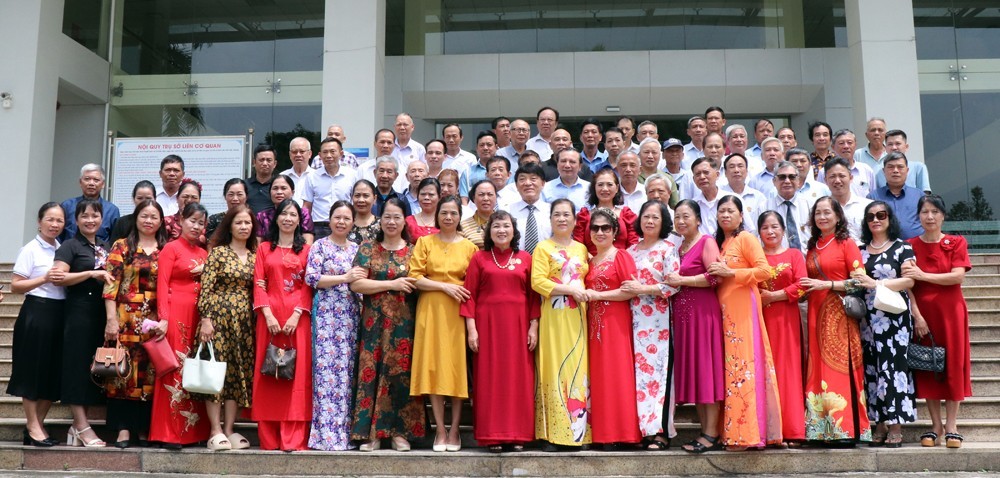 Viet's Home
Viet's Home
Meaningful People-to-people Diplomacy Activities in Bac Giang, Dong Nai, and Ho Chi Minh City
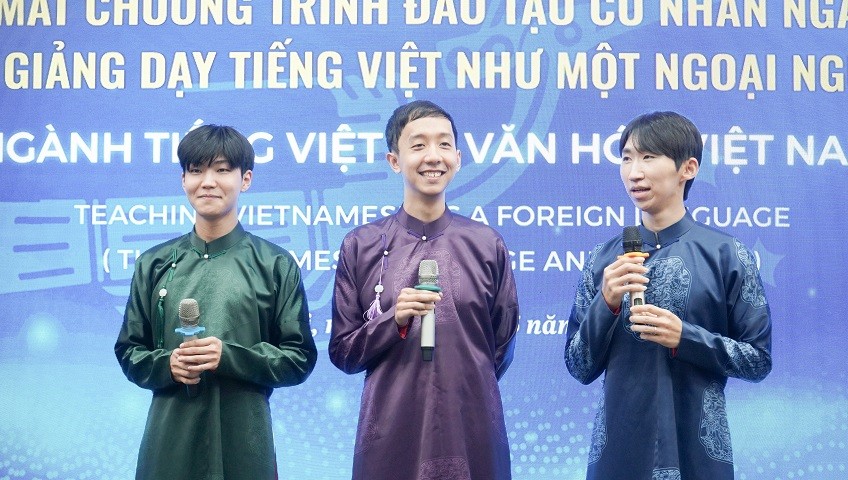 Viet's Home
Viet's Home
Brand New Vietnamese Language Training Program Launches in Hanoi
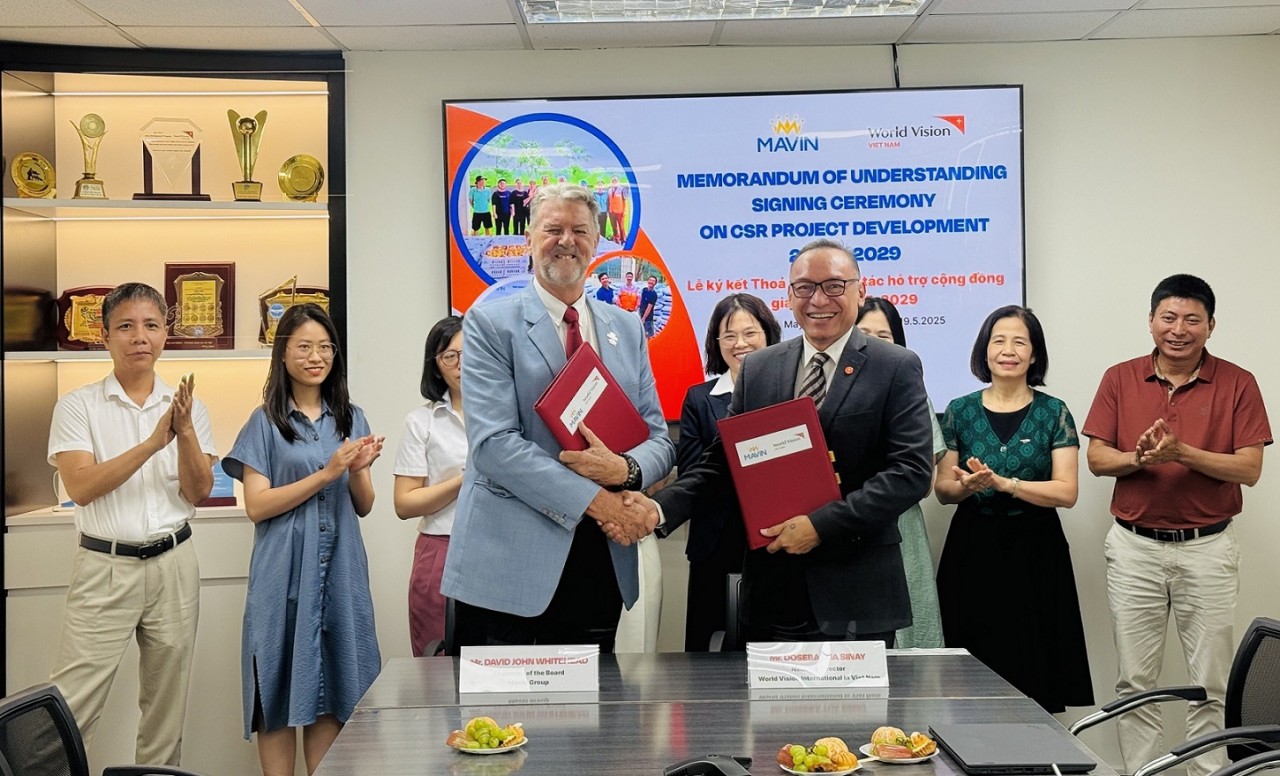 Viet's Home
Viet's Home
WVIV Supports Livelihoods and Improves Nutrition for Poor People in Thanh Hoa
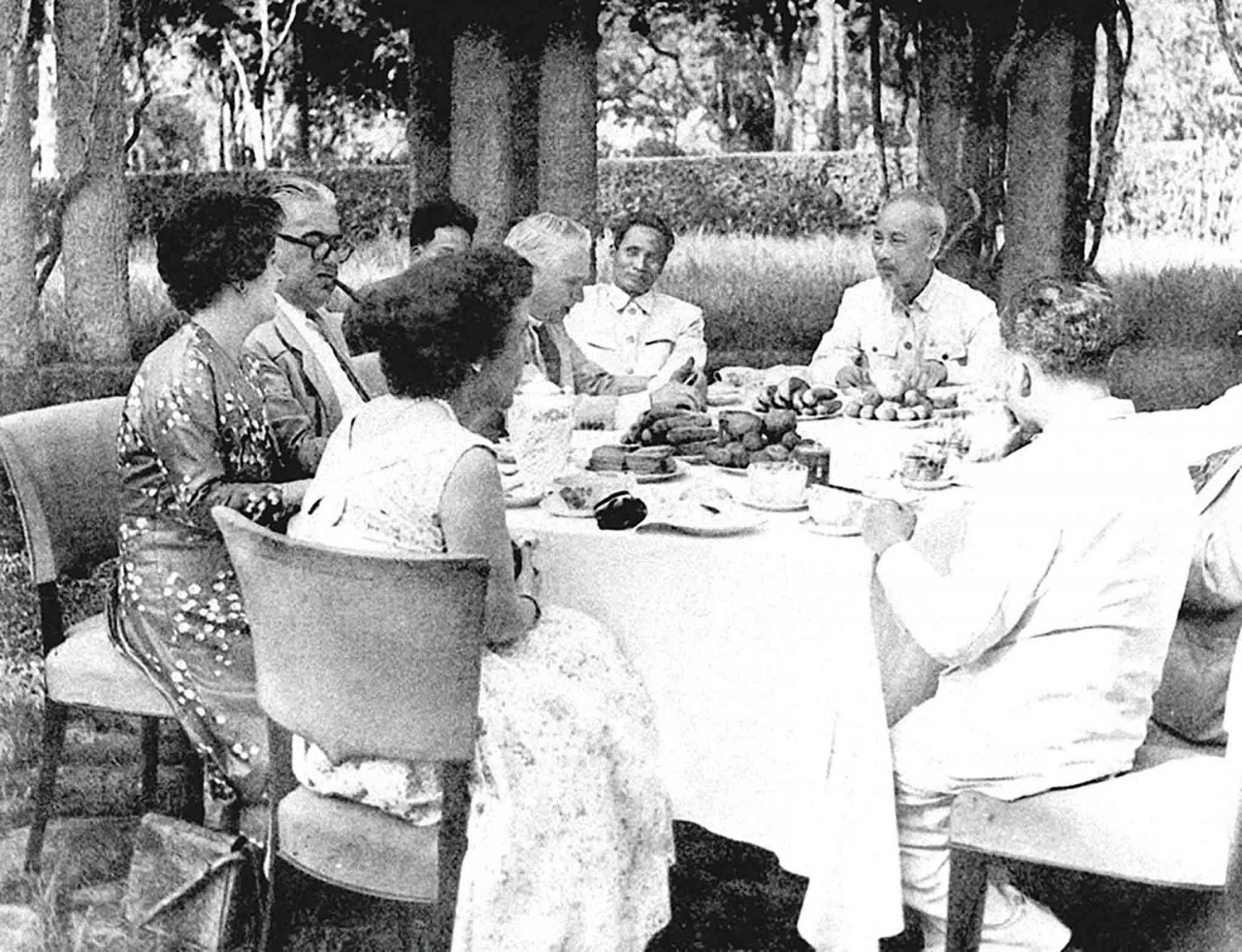 Viet's Home
Viet's Home


